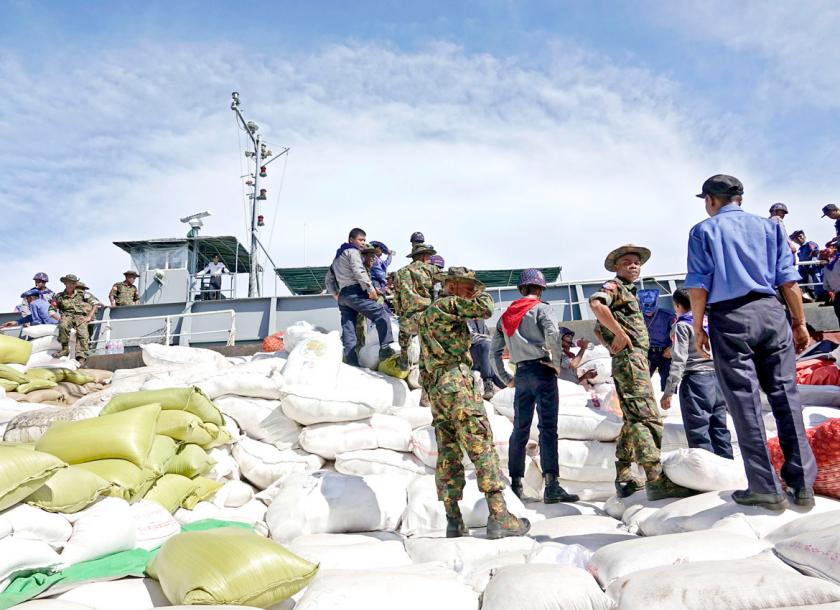Myanmar: Focus centres on Rakhine economy as West considers sanctions
Around half a million Rohingya Muslims are reported by the United Nations to have fled to neighbouring Bangladesh after an August 25 terror attack on government security forces by the Arakan Rohingya Salvation Army prompted military retaliation.
The sanctions on the military are being discussed amid mounting international pressure on State Counsellor Daw Aung Sang Suu Kyi to counter what has now escalated into a dramatic humanitarian crisis.
So far though, nothing has been decided. Washington and Brussels may decide to hold off for now as they are also wary of action that could hurt the wider economy, sources told Reuters. The EU Foreign Ministers Council is expected to discuss Myanmar on October 16.
Nevertheless, Myanmar is reported to be in negotiations with China and Russia to protect it from any possible action. China and Russia, which have veto powers in the Security Council, have both expressed support for the Myanmar government.
If decided on though, the sanctions could involve US asset freezes, US travel bans and prohibitions against US citizens from doing business with Myanmar. It would also set the country back after six years of economic progress since EU economic sanctions were lifted in 2012.
Business focus
Within Myanmar, the focus has centred on developing the Rakhine economy. Addressing members of the Union of Myanmar Federation of Chamber and Commerce (UMFCCI) on October 7, Yangon Region Chief Minister U Phyo Min Thein told business owners to cooperate to help rehabilitate the Rakhine economy.
“The Rakhine State needs to be rebuilt in every sector and its economy is a vital. I requested businesses to support the economy in whatever way they can,” U Phyo Min Thin told The Myanmar Times when contacted by phone Saturday. He did not provide details on what kind of assistance was needed to develop the state.
Currently, China is in the midst of finalising an MoU to develop a Special Economic Zone in Kyaukphyu as well as a deep-sea port in the area. The government is also negotiating for its stake in the SEZ to be raised from the 15 percent originally agreed under the previous government, to 30pc.
India has also been active in Rakhine. The Kaladan Multi-Modal Transit Transport Project, which will connect the eastern Indian seaport of Kolkatawith Sittwe seaport in Rakhine, was built based on a full grant from India. Indian companies were also involved in the construction of the Sittwe Jetty and Paletwa Marine Terminal.
In comparison, the US does not have a large investment presence in Myanmar. Meanwhile, an investment agreement between Myanmar and the EU is still under negotiation.
Lack of infrastructure
Still, the government must first help to develop basic infrastructure in Rakhine to attract more investments into the region, U Aung Naing Oo, secretary of the Myanmar Investment Commission, told The Myanmar Times in Nay Pyi Taw recently.
U Aung Naing Oo said that so far, there have not been any local or foreign direct investments in the conflict zone. He added that a government-backed economic zone dedicated to promoting trade, manufacturing and services in the outskirts of Maungdaw township in northern Rakhine this year has yet to get off the ground due to the lack of infrastructure.
In its final report of the Advisory Commission on Rakhine State released in August, the UN also urged the government to continue to “invest heavily in infrastructure, including roads, waterways, jetties, electricity, drinking water and internet provision.
To boost tourism, construction of a planned airport in Mrauk U must take place. Meanwhile, assistance in the form of machinery, provision of quality seeds and training in modern farming techniques should be extended to the Rakhine agriculture sector.
Source: https://www.mmtimes.com/news/focus-centres-rakhine-economy-west-considers-sanctions.html


 English
English




